|
*The blog post below was co-authored by Nicholas and Alyce Shields, who have been married since June 2015. The italicized text was written by Alyce, while the rest was written by Nicholas.
Almost 11 years ago, Alyce and I walked into our first high school class together and the rest was history… just kidding. While I wish it was that easy, living out your vocation is never easy. Although we are each called to a vocation by virtue of our Baptism, discerning that vocation is no mean feat. It takes time, patience, and community. Pope Francis said in his message for the 53rd Day of Prayer for Vocations, “Vocations are born within the Church … Vocations grow within the Church … Vocations are sustained by the Church.” The Body of Christ provides a wonderful example for us of the diversity of our vocations, and our church community is beautiful place in which to discern. Discernment is a very personal journey, yet we can greatly benefit from looking to one another and to those who have made this journey before us for guidance. Not only can we look to our priests and religious, but to our parents and grandparents as well! Discernment is not restricted to the priesthood or religious life, but also includes the call to marriage or consecrated single life! Alyce and I did not enter marriage blindly; we discerned our calling, discussed it with our family, friends, priests, and with each other before we took the next step. Because we discerned our vocation together, we strengthened our faith and developed our relationship with each other while being centered on Christ. What did that discernment look like? While it’s different for many, for us, it took waiting and time. In our four years of dating long-distance, God taught us patience and dependence on him. Nicholas and I learned of God’s faithfulness, that his love and promises are never outdone in generosity. In the many days of waiting, I found myself relying on the hope that if God calls something to be, He will make a way. Additionally, the greatest “I love you” that Nicholas and I would say for each other was this: “I’ll see you in the Eucharist.” This means that as members of the Body of Christ – which is the community of the Church that Nicholas previously mentioned – we are united through Jesus in his physical presence even though we were over a thousand miles apart. We learned that our identities reside in Christ and that our gaze must be fixed on him. This outlook, a relationship centered on Christ, does not just apply to dating and discernment, but also on marriage and family life. We have gotten engaged, survived long-distance, gotten married, are awaiting the birth of our first child, and we are still working to keep our lives centered on Christ. Living our vocation means that day after day, we must see each other in the Eucharist. In both times of joy and sorrow, our marriage has been strengthened through shared prayer and reliance on Christ. When we slack on the effort of making Christ the priority, we find ourselves bitter and sluggish. When we cling to Christ, we are more in tune with each other and find that we really live out the goal of helping each other get to heaven. With Christ, we can serve each other with the truest of loves and find confidence in God’s promises continually being revealed to us. We are so blessed to be journeying towards God together and sharing his love with those we encounter. None of this is easy, but it is necessary and worth it. For inspiration, Alyce and I often look to the Holy Family as a model of how we want our own marriage and family to be. Mary and Joseph had total trust in the Lord and put their lives in His hands. We strive to do this each and every day as we pray together, encourage each other, and serve one another. No matter where you are in your discernment, we encourage you to keep Christ at the center, to pray, and to trust in the Lord. Pope Saint John Paul II put it best, “Love Christ and love the Church! Love Christ as he loves you. Love the Church as Christ loves her. Do not forget that true love sets no conditions; it does not calculate or complain but simply loves.” Alyce Shields is a teacher and Nicholas Shields is a Young Professional in Washington, D.C. They have been married since June 2015.
0 Comments
"The confession of evil works is the first beginning of good works." -St. Augustine I’ll come right out and say it: I dislike going to Confession. I really do. And so I avoid it like the plague. We all have our struggles in faith, and this is my biggest one. “Why do I have to seek out a priest, another human, and tell him all the bad things I’ve done? Can’t I just talk to God directly? Doesn’t God hear everything in your heart?” We’ve all heard these questions—challenges, really—about the need for regular visits to the confessional. After all, God does know everything in our hearts. We can talk to him directly, and we should do so often! But we need more than just that internal dialogue with God. Our faith, after all, isn’t one lived alone. St. Paul tells the Romans, “We, though many, are one body in Christ and individually parts of one another.” (Romans 12:5) I may be a toe, you may be an earlobe, but we all, collectively, make up the one Body of Christ in the Church. So if that’s what we truly believe, and one of those parts gets hurt, the whole rest of the body feels that pain. If you stub your toe, the whole of your body stops everything and focuses on that pain. So, too, when we stub our spiritual toe, we create a ripple throughout the rest of the Body. We could talk at length about the nature and effects of sin, but that’s for another discussion. The point is that each of our sins have an effect, not just on ourselves and on God, but on the whole of the Church, too. And so we have three people or groups to reconcile with when we’ve sinned: ourselves, our Creator, and the larger Body of which we are each a part. And who better to forgive our sins than a priest? He’s a spiritual father, a representative of the Church, and, most importantly, someone who acts “in persona Christi,” or “in the person of Christ.” By virtue of his ordination, each priest has been given some pretty awesome powers. He can baptize people, he can bless places and things, he can call down the power of God onto simple bread and wine, miraculously turning it into Christ’s Body and Blood. So if he can do all those things, can’t he also exercise the power Christ gave the Apostles after his Resurrection? “Whose sins you forgive are forgiven them, and whose sins you retain are retained.” (John 20:23) That’s crazy! But it’s our faith, and it comes from Christ himself. We profess this in the Apostle’s Creed: “I believe…in the forgiveness of sins…” Now we’re all thinking, “Okay, that’s all well and good, but Confession is still too uncomfortable.” And you’re right! It is. That’s why I dislike going. I don’t like being uncomfortable. I don’t like to acknowledge the messy parts of life, including my own failings and shortcomings. I don’t like to admit that I’m wrong, especially when I keep doing the same wrong thing over and over again. But every time I finally buck up the courage (sometimes after months or years) to walk into a confessional, I’m never disappointed. The result is always the same: God has forgiven me and wiped the slate clean. And I feel so good about it! It’s not that I’m afraid of God’s mercy. In fact, I crave it. The problem is that I’m too afraid of my own self, of my own fragile and broken humanity, to even ask for this mercy. In my heart of hearts, I don’t believe I deserve it. And that’s the thing: none of us deserve it. Not one of us can ever be sorry enough, contrite enough, penitent enough, to make amends for what we’ve done and continue to do over and over again. We can never fully make it up to God; that’s why he sent his Son. Jesus took the sins of the whole world on his shoulders, beaten and bloodied though He was, until he became sin itself: “For our sake he made him to be sin who did not know sin, so that we might become the righteousness of God in him.” (2 Corinthians 5:21). He took every sin each of us will ever commit, carried them up on the cross, and died as payment for it. He’s already paid the price for us. It’s like a spiritual gift card that never expires, but we have to use it to take advantage of the gift. That’s why Confession is so important: the mercy is guaranteed; we have but to ask for it. Pope St. John Paul II once said, “Confession is an act of honesty and courage - an act of entrusting ourselves, beyond sin, to the mercy of a loving and forgiving God.” In this Jubilee Year of Mercy, may we all be honest and courageous enough to do that. Whether you just went to Confession last week or, like me, have been putting it off for way too long, be courageous and just go. Let the Year of Mercy have some personal meaning for you, and let God forgive you for what He’s already paid for upfront. For more resources on Confession and the Jubilee Year of Mercy, please click here. 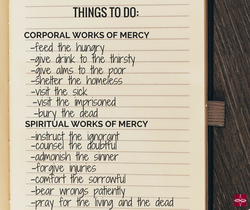 “The Corporal Works of Mercy are found in the teachings of Jesus and give us a model for how we should treat all others, as if they were Christ in disguise.” -United States Conference of Catholic Bishops (USCCB) The above description of the Corporal Works of Mercy reminds us that Christ lives within all of creation, unifying every living being. When we experience this sacred reality, we come to understand our actions as a means by which we may bring healing and wholeness to the Body of Christ. As our Bon Secours Ministry Volunteers practice the Corporal Works of Mercy through their service, they develop a deeper appreciation for the web of relationships which connects each of them in both an intimate and a personal way to all those they meet in their daily lives. In the reflections below, the BSVM volunteers share encounters which illustrate this growth. It is in the act of responding to their neighbor’s hunger and thirst for dignity through the Corporal Works of Mercy that our volunteers meet Christ in service. - Olivia Steback, Program Manager, Bon Secours Volunteer Ministry Feed the Hungry and Give Drink to the Thirsty By Gerard Ondrey When I bring a patient a container of apple juice or a pack of graham crackers, it often doesn’t register in my mind as a significant action. After all, most patients get three meals a day while in the hospital, something many of them do not receive outside the care of Bon Secours Baltimore Hospital. However, during my year of service I have come to realize the importance of these gestures lies not in their magnitude, but in the greater recognition of the human dignity these acts symbolize. The patients I encounter, many of whom struggle with poverty, homelessness, drug addiction, and other afflictions which contribute to their marginalization from mainstream society, are not used to being waited on or served. On the other hand, I am accustomed to going out to restaurants with family or friends, people taking my order, cooking my food, filling up my drink glass, and removing my dishes when I am done. When offering a patient a snack, I don’t quite have the selection of a five-star restaurant to choose from, but when I am asking a question as simple as, “Would you prefer apple, cranberry, or orange juice?” I feel I am embodying the ways in which I have been served. “Waiting” on patients, taking their “orders”, bringing them food, and clearing things away when they are done, feel like true acts of mercy. I am showing them that I find them important by honoring their requests and responding in a full and prompt manner. In my mind, this is what it means to live out the Corporal Works of Mercy of feeding the hungry and giving drink to the thirsty. In the above scenarios, the acts are not important because the people I am serving are in danger of starving to death in that moment, but because of the dynamic they represent; seeing and honoring Christ’s presence in all people elicits the desire to serve. Shelter the Homeless By Alex Yeo Through my ministry in the emergency room I have been able to work with many of the homeless men and women who reside in our community. These individuals come to the hospital seeking medical care and assistance with their social problems. My role, when I first meet them, is to ensure that their non-medical needs are addressed. One of the main organizations the hospital partners with is Healthcare for the Homeless, a nonprofit that provides medical care and social service assistance. With their aid, I have been able to provide patients the support and resources needed to help them transition out of homelessness. Visit the Sick By Mackenzie Buss Our volunteer community has been fortunate enough to avoid sickness so far (thank you Lord!) but, every day at the hospital, we work with those from the greater West Baltimore community who are ill. In my experience, it is often the sickest patients who are the most difficult to 'be present to'. All of our renal patients have a lot going on in their lives, from physical ailments, comorbidities, and actual disability to the myriad social problems that living in an impoverished neighborhood presents. In spite of the massive obstacles that all our patients face, there is still a huge range in energy levels and general overall health. The chipper, friendly, energetic patients are often the easiest to build relationships with. At first, I was daunted by the prospect of talking to the older, quieter, sicker renal patients. As I have grown and learned with Bon Secours Volunteer Ministry this year, I have come to understand that our service isn't necessarily about entertaining patients, solving little problems, or even listening to them. It's about being there for them with your whole soul. That is the mentality that empowered me to smile a bit and sit down next to one of our elderly, quiet, very sick nursing home patients. Sometimes, I'll hold her hand or say something that I am thinking of, but mostly I just sit there beside her. It's really a silent visit, a moment of being present to one of my sisters in Christ in the only way I know how - to just be together. I don't have much else to offer her, but something about those tiny moments, no matter how small and simple, just feels right. It's like a little slice of the Holy Spirit is there in right relationship with us as we sit and simply be together. Visit Prisoners By Elizabeth Modde It is not unusual to pass a man or woman walking down the hallway in handcuffs, flanked by two security guards. Bon Secours Hospital in Baltimore ministers to patients from the Department of Corrections. In fact, some patients admitted to St. Martin's Hall Inpatient Unit will be discharged to the police. Seeing these patients, shackled to their beds, I find myself trying to imagine what they must be feeling. Some are visibly anxious. With a small idea of the dehumanization that can be experienced in prison, I feel privileged to extend warmth and kindness to our prisoners at the hospital. Recognizing basic humanity and dignity, of both patients and the guards in their rooms, can be as simple as smiling and offering a cup of water. Bury the Dead By Alex Yeo In the ER, you rarely get the opportunity to develop a lasting relationship with a patient. There is a very specific process: triage, treat, and either discharge or admit to the inpatient floor. The focus is on efficiency not casual conversation. Regardless, many of the patients that come to the ER frequently are often too intoxicated or incapacitated to engage in conversation. This year, however, I had the privilege of meeting a patient, let us call him David, who had developed a lasting relationship with the ER staff. David, admittedly, was not the most pleasant patient to work with; a homeless alcoholic he had been cycling through the ER for over twenty years. I was always impressed that despite how frustrating it was for the staff to see him constantly return to the hospital, they were able to retain hope for his future. He was always given a place to rest out of the cold, a warm meal, and often times new clothes. The ER staff was his family. Their relationship may have begun begrudgingly but was now one of love and concern. When David passed away this winter, the mood in the ER was one of sadness and relief. Knowing that he had moved on to a better place brought solace to those who had worked with him. Being one of the last people to work with him, I was given the task of organizing his memorial service. Visiting the different departments of the hospital to raise publicity about the service, I was amazed at how many people in the hospital knew of him or had stories about caring for him. The hospital staff had given him many resources and much love, but he also gave back to us. During those difficult and frustrating moments of caring for him, he taught us how to love and to be patient; how to look past one’s impulsive judgments and tap into a deeper desire to care for one another as members of God’s creation. For those lessons we are eternally grateful and his presence will be greatly missed. Give Alms to the Poor By Nicole Odlum Through my ministry, I had the privilege to deliver Christmas gift bags to the many seniors I visit every month for blood pressure screenings. Around Christmastime each year, women from local Baltimore churches donate gift bags filled with simple personal hygiene products, laundry and dish detergent, and hand-knit scarves. For many of the residents, this may be the only Christmas present they receive. When I told them they could keep the entire bag of gifts, the look on their faces was humbling. The gratitude and appreciation they expressed was inspiring; this simple, unexpected gift bag brought them so much joy. One woman actually came back down from her apartment after leaving with her gift bag to thank us again for the things we gave her. That was an extremely powerful moment for me, because I realized how much these simple items, items most people consider a necessity, meant to the seniors. Pope Francis writes that, “Mercy is the force that reawakens us to new life and instills in us the courage to look to the future with hope.” Please continue to remember our volunteers in your prayers as they take Pope Francis’ words to heart and strive to courageously live lives of mercy and hope. To learn more about the Corporal and Spiritual Works of Mercy, click here. This post was originally written and posted on the Catholic Volunteer Network Blog. For more Catholic Volunteer Blog Posts please visit the CVN Blog Page. The Catholic Apostolate Center is proud to partner with the Catholic Volunteer Network by developing faith formation resources for volunteers and alumni, assisting in its efforts to provide and advocate for faith-based volunteerism and collaborate in many additional ways. In my Bible study, we are reading through the Second Letter to the Corinthians from St. Paul. The last session covered Chapter Five. It deals with the current and future destiny of our bodies. For we know that if our earthly dwelling, a tent, should be destroyed, we have a building from God, a dwelling not made with hands, eternal in heaven. In verse one, Paul says our earthly dwelling is a tent. What is the tent? Even in his day, most people didn't live in tents. They had stone or wood houses. Clearly that can't be what Paul meant. In fact, he is referring to the earthly body as a tent, and the heavenly body as a building. In the Old Testament, the Israelites traveled with the Holy of Holies, the place where the Presence of God was pleased to dwell in a special and unique way, in the form of a tent structure. It's portable, appropriate for a sojourning people. When they finally reached the Promised Land, King Solomon built the Temple out of stone and precious metals. It was a structure of permanence and stability; it declared this is where God is and He isn't moving. A tent is a much flimsier home than a stone building. Yes, they are both dwelling places, but stone is harder to destroy than cloth, and more secure. There is, to borrow a phrase from Alice in Wonderland, a muchness to stone, a weight and solidity that tents don't have. In the Transfiguration scene in Luke 9: 28-36, Jesus' face and clothing are changed. Scholars take this to mean that we will have our same bodies, the one the soul is united with right now as you read these words, for all eternity. For better or worse. In Heaven, the body shall be glorified and refined, receiving a muchness that we don't have now. In Hell, the body shall be as damned as the soul, in anguish just as fitting. In the ancient world, this concept of retaining your physical body after death would have been flabbergasting. Most philosophical traditions saw the body as something other than the true self. It was something to be punished, or used for mere pleasure, but importantly gotten rid of, so the spirit-self could be free. Christianity says otherwise. We, human beings, are body-soul composites. Matter and spirit united into one creature. And that is good. If we were pure matter, we would be like the inanimate universe, or at best like animals. If we were pure spirit, we would be angels. We are neither. We are a unity of the two most opposite things in the universe, and God looks at us and says we are good. There is a reversion of thought in our modern world that reflects the ancients: either the body doesn't matter at all and I just need to get rid of it because it's not really me, or it's all that matters because there is nothing else to me. It's sneaks into Christian minds as well. Which is devastating, on the psychological and spiritual levels. We should have a sense of home-ness in our bodies. Have you ever met someone who just seemed uncomfortable in their own skin? As if they didn't know what to do with themselves? Have you ever been that person? We're often expected to get our act together. Be confident. Act normal. Own yourself. But you can't own selves, yours or anyone else's. That is a mask. And a mask is not a home. Think now of the people whom you've met who were so solid and real and, in a word, themselves, that you felt comfortable enough to be yourself. Think of the people whose houses you walk into and sigh with peace and the knowledge that you are loved. Think of those whose arms embrace you and tell you it is good to be alive. One of the best ways to love others is to love yourself. Treat yourself with dignity and respect. The Christian is commanded to love as Christ loved, and thus has the duty to be a holistically integrated human being more so than the rest of society. Be at home in your own skin, and allow others to be home in their own existence. We want visitors and guests to feel welcome in our homes, don’t we? Well, they can't unless we do; stability and hospitality begin in the heart. These virtues start to grow when we allow ourselves to become integrated and united, when all of our being is directed and following one Way with all your heart, with all your mind, with all your strength, and with all your soul.
This time of the New Evangelization in the Church is beautiful: all the faithful are called to spread the love of Christ to the hearts of modern men and women. While the term New Evangelization, though beautiful, has become almost overused, common jargon within the Church, we are called to the radical joy and love the New Evangelization promotes. The task seems lofty at first glance. With controversies of all sorts in society today, the charge to love like Christ is even greater. However, the Body of Christ has been in trying times throughout the ages, and it’s the ability of holy men and women to magnanimously love that makes a difference in society. Today, the Church celebrates a saint that is a perfect example for the faithful of living out the call of the New Evangelization: St. Philip Neri, the Apostle of Joy. St. Philip Neri, a radical saint of the 16th Century, was known for his humility, obscure and hilarious means of mortification, pastoral care, humor, and charm. The legend and stories of St. Philip Neri are plentiful and cannot all be spoken of in this short post, but his charity is worth mentioning for those who are attempting to live out the call of the New Evangelization. Philip was known to have a strong devotion to the Holy Spirit. At the age of 29, before the feast of Pentecost, Philip was praying for a special outpouring of the Holy Spirit when he saw a globe of fire enter his mouth, move down his chest, and travel to his heart. At that moment, Philip experienced an immense amount of joy, as if his heart had expanded. The saint had been filled with the love of God! Throughout the rest of his life, when Philip was ministering to people in the confessional, celebrating Mass, or performing acts of charity, his heart would violently palpitate. Oftentimes, Philip would embrace his penitents and hold them close to his chest. The faithful would receive an immense amount of consolation from the embrace and this practice became known as “the most effective way of being delivered from temptation.” St. Philip Neri was known as the Apostle of Joy because his aim was love, and the Holy Spirit, the Flame of Love, was the driver in his mission. Philip died at the age of 80, dedicating his entire life to mercy, love, and joy. The many stories that follow him affirm that claim. He was dedicated to the Sacrament of Confession and would be available for Confession at all hours. Dispensing the mercy of Christ, Philip spent his last day on this side of heaven hearing confessions from the people he served and loved. Those he ministered to claim they could not be sorrowful or depressed around Philip; he exuded a constant flow of Christ’s joy. During an evaluation to determine Philip’s cause of death, the examiner found Philip’s heart to be twice the size of an average heart, causing the ribs around the heart to break and curve out. The love of God had been made manifest physically within him. Today could you imagine a Church with followers whose hearts, like Philip’s, are enlarged with love for neighbor? This is the call of the New Evangelization—to spread Christ’s fragrance of love everywhere, “for we are the aroma of Christ” (2 Cor 2:15). The Church is in a unique time. Our intellectual arguments often mean little, but our actions and witness of love are powerful. The New Evangelization calls us to be little Apostles of Joy. Wherever we are and wherever we go, we are to love. Cardinal Ratzinger explained that evangelization is teaching people the path to happiness. “To evangelize means: to show this path—to teach the art of living,” he said (Address to Catechists and Religion Teachers, 12 December 2000). St. Philip Neri taught those around him the art of living a joyful, humble life, motivated by the love of Christ. To live the New Evangelization, we are to have a heart like his, witnessing and walking with others and teaching the art of living. The Body of Christ must be propelled by the love of God. Today, let us invite the Holy Spirit into our hearts in a deeper way so we might gain a greater capacity to love like our joyful friend, St. Philip Neri. May we be a people of love with enlarged hearts for Christ, spreading joy to all. “The love of God makes us do great things.” –St. Philip Neri For more resources on the New Evangelization, click here. This week, Nov. 1-7, celebrates National Vocation Awareness Week , a time U.S. Catholics dedicate “to promote vocations to the priesthood, diaconate and consecrated life through prayer and education, and to renew our prayers and support for those who are considering one of these particular vocations.” We should always promote vocations, but sometimes we need an explicit reminder! We need more than a day or week; we need a culture. This week is about each of us taking a step toward fostering a culture of religious vocations in the Church. As many priests, sisters, brothers, etc., will tell you, the best way to support and promote religious vocations involves every one of us personally committing to live our own vocation faithfully and joyfully, whether that be in the priesthood, the diaconate, married life, consecrated life, etc. It’s impossible to be truly pro-marriage and be against religious vocations; they harmonize! Discerning and answering a call is our responsibility to the Church as baptized and confirmed members of the Body of Christ. Many young people who came face to face with St. Pope John Paul II would ask him: “What is my vocation!?” He used to say, “You must choose!” How disappointing in the moment, yet what a true and wise response! God endows each person with a unique vocation and graciously calls each to respond with the gift of his or herself. You may be thinking: easier said than done. It’s true; discernment is not always easy, especially when immersed in a consumer culture that frequently substitutes success for faithfulness and material gratification for spiritual wholeness. But discerning a vocation is also not an infinitely hard matter of finding a needle in a haystack. It simply is not true that only God’s “favorites” or the exceptionally smart or good looking end up truly happy. Below are some great practices the Church recommends for anyone discerning a vocation. Visit a Spiritual Director or Mentor One of the most important things you can do to discern and sustain your vocation is develop a relationship with a spiritual director or mentor. They do not necessarily need to be a professional theologian or psychologist; look for someone faithful and joyful in their vocation. Focus on finding someone that can offer practical guidance with whom you will be honest and transparent—someone who will consistently encourage you to pray and grow. If you are considering a religious vocation, it would be helpful to meet with a priest or member of religious life. Make Prayer a Priority Prayer is the essential element of discernment. This is probably not a surprise. It’s the time we lay out all our mixed thoughts and emotions before Jesus and let him reveal his way in our life. You can begin simply by praying: “God, help me to know your will for my life and desire it.” Practice going deeper into praying with the Bible and reflecting on passages from Scripture, sometimes called lectio divina, or try to learn or incorporate some part of the Liturgy of the Hours into your schedule. Cultivate Friendships Solid, faithful friendships go much further when discerning a vocation than having a plethora of worldly or romantic relationships. True friends know our identities are composed of both our weakness and our strengths. I often see my friends as a sort of vocational “litmus test;” they know me well enough to detect when choices or relationships seem in or out of step with my true character or wellbeing. Vocational awareness is a fruit of a culture of friendship, as I tried to suggest here. Develop a Tradition The Catholic faith has many rich, diverse, and time-tested charisms (e.g., Franciscan, Ignatian, Dominican, Carmelite, Pallottine, etc.) that can inspire and nourish vocations to religious life and marriage alike. While it’s great to explore and incorporate the tools of many traditions, try to become fluent in one. Different charisms have a special resonance with different people. Learn Their Story Are you aware of your pastor’s vocation story or the vocation story of any member of religious life around you? What about your own parents, grandparents, and mentors? Maybe it’s simple and straightforward; maybe it’s long and exciting or even difficult. Ask those around you about their own story. A vocations culture lives and grows by these real-life examples. Every story of God’s love is worth sharing. In today’s first reading, we hear about God’s work in our lives and how it is by His grace that we overcome our faults and our failures. In his first letter to the Corinthians, St. Paul lays his own life out before us, yet again, as an example of how we must become apostles of Christ, spread His Gospel, and renew ourselves in Him.
Last of all, as to one born abnormally, he appeared to me. For I am the least of the Apostles, not fit to be called an Apostle, because I persecuted the Church of God. But by the grace of God I am what I am, and his grace to me has not been ineffective. Indeed, I have toiled harder than all of them; not I, however, but the grace of God that is with me. Therefore, whether it be I or they, so we preach and so you believed. (1 Corinthians 15:8-11) St. Paul persecuted Christians until he heard God’s voice calling him to open his eyes and recognize Christ. He was like us—sinners in a constant battle between temptation and living out the Gospel message. And yet, St. Paul was knocked off of his horse and raised to new life in Christ. He does not attribute his new life and his faith in Christ to his own willpower, but rather recognizes that it is through the grace of God that he is able to enter into the Body of Christ. It is through the grace of God that he is able to preach the life of Christ. As he says so poignantly: “By the grace of God I am what I am.” These are important words to live by. We are often caught up in the traditions, stereotypes, struggles, and joys of our earthly lives. What truly grounds us in our humanity and in our faith in Christ is that, by the grace God, we are who we are. God gives us the grace to go out into the world and evangelize, to spread the Gospel, to live as Jesus taught us. However, by nature of our humanity and by the gift of free will, we have the choice to live as we want to live, to sin, to grow in faith, to make war, to make peace. We, guided by the Gospel and the Church, are called to ask God for the grace to evangelize, the grace to resist temptation, and the grace to live as Christ lived. We are first opened up to the grace of God through our baptism, a topic discussed in Tuesday’s blog post. We enter the waters of baptism and die to sin, arising to new life in Jesus Christ. In this sacrament we are called to live out Christ’s Gospel message. As our Holy Father, Pope Francis, said: “I am a sinner, but I trust in the infinite mercy and patience of our Lord Jesus Christ.” Receiving the grace of God is not a one-time thing, we must continue to seek it every day and renew ourselves in Him. It is not a one-time thing and it is not easy, but we have the beautiful example of Mary the Mother of God and all the angels and saints and we must rely on their strength and their intercession in asking for God’s grace. Archbishop Fulton Sheen once said , “Mary was not full of grace because she was beautiful; she was beautiful because she was full of grace.” Who better to ask for help than a woman so blessed with the grace of God that she carried His son in her womb for nine months, watched him grow in his ministry, and sat at his feet as he suffered and died for us? The Second Vatican Council’s Dogmatic Constitution on the Church, Lumen Gentium, tells us that “…in suffering with Him as He died on the cross, [Mary] cooperated in the work of the Savior, in an altogether singular way, by obedience, faith, hope, and burning love, to restore supernatural life to souls. As a result she is our Mother in the order of grace.” It is important to examine our consciences and call to mind our sins, asking Mary to intercede for us. We pray that we might be given God’s grace to live our lives as Christ did, to go out and preach the Gospel in the example of St. Paul, and to lead others to Christ. Nicholas Shields is a young professional from Washington, D.C. "The fruit of sacramental life is both personal and ecclesial. For every one of the faithful on the one hand, this fruit is life for God in Christ Jesus; for the Church, on the other, it is an increase in charity and in her mission of witness" (Catechism of the Catholic Church 1134).
I am a liturgical - and sacramental - junky. Whether it be when the organ plays, the incense burns, wooden crosses process or babies cry- I love being part of liturgies! But my love of liturgy does not end with the communal gathering or the symbolic signs. Rather, the reason I love liturgy is that I believe, as Fr. Aidan Kavanagh, OSB, a liturgical theologian, put it, “liturgy is doing the world the way the world was meant to be done.” In the liturgy we are participating in the life of God. We are entering into, and living within, the eternal circulation of the Trinity’s love! But what does that actually mean? It means that we are not simply attending a gathering. We do not show up to another building for another event. It is not a lecture or a show. Rather it is a transformation of ourselves with our God, who is love, so we can go out and witness to that love and act out of it. This is why I love liturgy. It calls me out of myself. It shows me God acting in all things and then sends me out to be his hands and feet. Liturgy connects me to the Body of Christ and reminds me that I am to care for that body. It shows me that the world can be used to glorify God and that the world itself, being God’s creation, is a symbol of His active presence in my life. David Fagerberg, a professor of theology at the University of Notre Dame, illustrates this thought saying, “Water could be a sign of God’s love if I gave a cup of it to someone who is thirsty, but not if I use up on my golf course the water he needs for his vegetable patch.” Liturgy reminds and shows us how to act out of love, not pride; to live out of hope, not despair; and to be guided by compassion, not self interest. Pope Francis affirms that we must be a living Church: a Church for the poor, a Church that acts. He emphasizes that, “Jesus teaches us another way: Go out. Go out and share your testimony, go out and interact with your brothers, go out and share, go out and ask. Become the Word in body as well as spirit.” We encounter, learn and receive Christ in the Liturgy in order that might know Him and act as His Body for the world. This Sunday we must remember that we are participating in something that goes beyond the building, the preaching and the music. We must remember that we are encountering Christ and he is teaching us a way that asks us to share in his mission of building the kingdom of God by acting out of the truths of love, justice, kindness, and peace. Pam Tremblay is a collaborator with the Catholic Apostolate Center. She currently works at St. John's University in Queens, NY as Resident Minister for Social Justice. Editor's Note: This post was originally published on July 30, 2013 In his final words as Supreme Pontiff, Benedict XVI reminded us from the balcony of Castel Gandolfo that he was “simply a pilgrim beginning the last leg of his pilgrimage on Earth.” In doing so, he reminded us, the faithful, that we too are on an earthly pilgrimage. Benedict’s goal, as well as ours, is the Kingdom of Heaven. As pilgrims, we travel around and seek the ways that will lead us to our destination. Though at times we go down the wrong path, we trust that, having faith in God, He will always bring us back to our goal, to be with Him. Thus, we are truly a “Pilgrim Church,” a community of believers on a voyage to Christ.
This past Sunday, we celebrated the great solemnity of The Most Holy Body and Blood of Christ, also known as Corpus Christi. The history of the feast goes back all the way to the early 1200s in modern day Belgium. St. Juliana of Liege, a Norbertine canoness, had a vision of a full moon with a dark spot. The spot, she believed, represented the absence of a feast dedicated to the Blessed Sacrament outside the season of Lent. After reporting her visions to her confessor and bishop, the bishop instituted such a feast in the diocese in 1247. Several years later, Pope Urban IV extended the celebration to the universal church in 1261. It was he who requested St. Thomas Aquinas to write hymns for the feast day. We know them today as the Pange Lingua and Panis Angelicus. Urban successors, most especially Clement V in 1311, reinforced the original decree and promoted the observance of the feast. One of the most beautiful and traditional aspects of the celebration is the procession of the congregation behind the Eucharist encased in a monstrance. On a personal note, this day has always been one of my favorites growing up. I loved walking with my family and friends around the church building (often stopping traffic!), all following our pastor holding the monstrance up as high as he could. In many ways, the Corpus Christi procession mirrors our pilgrimage (our procession) on earth. Together, with other members of the faithful, we are led toward God, whose real presence on earth is in the Eucharist. The Most Blessed Sacrament is the point in which heaven and earth meet. Not only is it our guide on earth, but also our guide to heaven. Processing around, following the Eucharist is a reminder that what we do on earth can lead us to an everlasting reward. By receiving the Eucharist, we are given the strength (both spiritual and physical) to continue on our earthly journey. As St. Thomas Aquinas once wrote, “Per tuas semitas duc nos quo tendimus, ad lucem quam inhabitas” (By your ways lead us to where we are going, to the light where you live.) Victor David is a recent graduate of The Catholic University of America in Washington, D.C. Lent is a time of reflecting on how to better ourselves in our relationships with our friends, our family, and our God, as well as a time to reach out to those less fortunate than us and show them the love of Christ. Most people probably do not think of this Lenten journey as a time of joy, but I do, for not only does Lent allow us to refocus ourselves on Christ, but it also calls us to share in the suffering of Christ.
During Lent we hear how Christ’s ministry unfolded and how people came to see him as the Son of God, our Savior and Redeemer. Christ’s journey was not easy. He endured pain and suffering for our sins in order that we might be reborn to new life through the sacrifice of his body and blood. St. Francis of Assisi wrote in “True and Perfect Joy” that the sick could be healed and the whole world could be evangelized, yet true joy comes in a mutual suffering with Christ on the cross. But how can suffering be joyful? Here on earth, in this life, the greatest and most intimate experience with Christ comes from our participation in the Eucharist. However, by also sharing in Christ’s suffering our relationship with him grows even more intimately. Indeed, taking part in Christ’s suffering allows us to more deeply share in the mystical Body of Christ. St. Paul wrote in Colossians 1:24, “Now I rejoice in my sufferings for your sake, and in my flesh I am filling up what is lacking in the afflictions of Christ on behalf of his body, which is the church.” During Lent each of us is called to share in Christ’s suffering in a unique way, whether that be sacrificing our usual daily donut, praying a rosary each day, or taking time to serve meals to the less fortunate. We need to recognize that in these sacrifices we share in some small way in Christ’s suffering, and thus are brought infinitely closer to him. How can this not bring us joy? Since Pope Francis recently released Evangelii Gaudium, “The Joy of the Gospel,” it seems prudent to also reflect on how we are called to live out his concept of joy this Lent. In the introduction of this exhortation, Pope Francis talks about rejoicing in the cross, “The Gospel, radiant with the glory of Christ’s cross, constantly invites us to rejoice” (Evangelii Gaudium, 5). The joy of which Pope Francis speaks, joy coming from the Gospel, is a joy that radiates from our love for Christ and our willingness to serve Him and others. It is through our ability and desire to follow the Lord’s commandments and our attempt to imitate Christ’s relationship with the Father that we are able to share in this joy. There could not be a better message this Lent as we try to refocus our faith and to better ourselves before our Lord! I have challenged myself this Lent to live out these two conceptions of joy each day: sharing in Christ’s suffering and my continued desire to serve Him. It is through each of these that we not only build up our own faith and discipline, but also have the ability to share it with others. We can bring Christ’s joy and peace to His people here on earth. Through this participation in Christ’s mission, we get a small glimpse of Christ’s infinite love for us. Pope Francis says it best as he reminds us of what joy should look like in our lives, “Joy adapts and changes, but it always endures, even as a flicker of light born of our personal certainty that, when everything is said and done, we are infinitely loved” (Evangelii Gaudium, 6). Nicholas Shields is a senior and the Grand Knight of the Knights of Columbus at The Catholic University of America Why do Christians, and in particular Catholics, pray? What is the purpose of prayer and how does it have any effect on me? Growing up in New England, I find that more people don’t see the significance of praying to God, even if they believe in his existence. They don’t see how a relationship with God can bring any meaning into their lives. On the other side of the coin, I think that while the majority of practicing Catholics realize that prayer, especially the prayer we call the Mass, is important, we can’t really articulate what the purpose of prayer is. We fail to grasp its necessity in fulfilling the deepest longings in our hearts.
While this may sound problematic if unanswered, the beautiful solution lies at what the past two popes say about prayer. If I were give you a SparkNotes summary as to why Popes Benedict XVI and Francis believe prayer to be so important, it would be three words: God is Love. This description of God comes from the first letter of John 4:16 – “God is love, and he who abides in love abides in God, and God abides in him.” Well, you’re probably thinking that sounds nice and pretty, but what does God being “love” have to do with me praying? The Catechism of the Catholic Church, as noted by Pope Benedict XVI in his General Audience on May 11, 2011, states that “In prayer, the faithful God’s initiative of love always comes first; our own first step is always a response.” So the Catechism is defining prayer as receiving and responding to God initiating himself to us as love. When we are praying, we are not merely attempting to talk to an open space in our room or in a chapel; we are receiving the love of God. This receiving makes prayer a form of participating in an event or experience, not just a conversation. That event we’re talking about is the love of God, because it was and continues to be revealed through his son, Jesus Christ. So the first point is that prayer is the participation (receiving and responding) in God’s love, making prayer not only a conversation with God, but also an event. This is all very good, but how does one participate in this “event”? This is where Mass becomes important, because this experience occurs every time we go to Mass when the bread and wine become the Mystical Body and Blood of Christ. We participate in this prayer by receiving the Body and Blood of Christ. We’ve come to understand that the Mass is the foundation and apex of Catholic prayer. Why, then, do we participate in additional forms of prayer, such as the Rosary, the Liturgy of the Hours, and so on? Why can’t I just go to Mass and get everything I need there? I like to think that the best responses are counter-questions, so let me try to answer this by asking the following: why wouldn’t someone, who receives God as Infinite Love in the Eucharist, want to have any form of separation from him? Think about it. If we were to just go to Mass, and nothing more, we wouldn’t be perpetually united with God. We’d have a good foundation with Mass, but that’s like saying there is no need to build the rest of a house (i.e., the roof) because it has a good foundation. Another analogy I like to think of is a family event, such as a family vacation or Thanksgiving dinner. You don’t build relationships with loved ones by just showing up for family gatherings (or at least I hope not). You spend time with them outside the event as well! If I love my parents, I will not just show up for Thanksgiving. I will want to talk with them on a regular basis to catch up and see how things are going. Spending time with God sounds good, but where do I start? What do we say to God in prayer? Pope Francis offers us some advice. In his daily homily for Mass on June 20th, he said the following: “There is no need to fritter away words in order to pray: the Lord knows what we want to say to him. The important thing is that our first word be “Father.” This prayer that says ‘father’ first is the Our Father that Jesus gave to the apostles in the Gospel of Matthew (6:7-15). Pope Francis then makes an additional point. He says that rather than praying to the “God of cosmos,” we must pray to the “Father” who begot us. To go further, we pray “our” Father because he is not generic or anonymous, but the “One” who has given life to each and every one of us. When we go back and say, “God is Love,” God is not some distant figure. He is “Our Father,” and that is how we can pray to him. We can use the very words that Jesus taught us. Prayer is our willingness to participate in the love of God, who is our Father, and his manifestation of love to us is not just a conversation, but also an experience we are fortunate to perpetually be part of if we so desire. That is why prayer is important. Without prayer, we cannot receive nor can we answer to our Father’s invitation of His Infinite Love. So go to Mass, pull out your Rosary, read scripture, and spend time with God because it is an invitation to be united in love with your heavenly Father. You could even start by simply saying, “Our Father…” Andrew St. Hilaire is the Assistant to the Director of the Catholic Apostolate Center “The fruit of sacramental life is both personal and ecclesial. For every one of the faithful on the one hand, this fruit is life for God in Christ Jesus; for the Church, on the other, it is an increase in charity and in her mission of witness" (Catechism of the Catholic Church 1134).
I am a liturgical - and sacramental - junky. Whether it be when the organ plays, the incense burns, wooden crosses process or babies cry- I love being part of liturgies! But my love of liturgy does not end with the communal gathering or the symbolic signs. Rather, the reason I love liturgy is that I believe, as Fr. Aidan Kavanagh, OSB, a liturgical theologian, put it, “liturgy is doing the world the way the world was meant to be done.” In the liturgy we are participating in the life of God. We are entering into, and living within, the eternal circulation of the Trinity’s love! But what does that actually mean? It means that we are not simply attending a gathering. We do not show up to another building for another event. It is not a lecture or a show. Rather it is a transformation of ourselves with our God, who is love, so we can go out and witness to that love and act out of it. This is why I love liturgy. It calls me out of myself. It shows me God acting in all things and then sends me out to be his hands and feet. Liturgy connects me to the Body of Christ and reminds me that I am to care for that body. It shows me that the world can be used to glorify God and that the world itself, being God’s creation, is a symbol of His active presence in my life. David Fagerberg, a professor of theology at the University of Notre Dame, illustrates this thought saying, “Water could be a sign of God’s love if I gave a cup of it to someone who is thirsty, but not if I use up on my golf course the water he needs for his vegetable patch.” Liturgy reminds and shows us how to act out of love, not pride; to live out of hope, not despair; and to be guided by compassion, not self interest. Pope Francis affirms that we must be a living Church: a Church for the poor, a Church that acts. He emphasizes that, “Jesus teaches us another way: Go out. Go out and share your testimony, go out and interact with your brothers, go out and share, go out and ask. Become the Word in body as well as spirit.” We encounter, learn and receive Christ in the Liturgy in order that might know Him and act as His Body for the world. This Sunday we must remember that we are participating in something that goes beyond the building, the preaching and the music. We must remember that we are encountering Christ and he is teaching us a way that asks us to share in his mission of building the kingdom of God by acting out of the truths of love, justice, kindness, and peace. Pam Tremblay is a collaborator with the Catholic Apostolate Center. She currently works at St. John's University in Queens, NY as Resident Minister for Social Justice. It is once again that time of year for pastoral leaders to be making their way to the Mid-Atlantic Congress (MAC) in Baltimore. Registration fees have been paid, rooms have been booked, and deals on parking spaces have been found. The preparations are well under way for another Congress, and where does my mind go? To the Council of Elrond in Rivendell. That’s right, I am about to compare a gathering of pastoral leaders to The Lord of the Rings. Although the MAC at first glance may not appear to be as epic as Tolkien’s depiction of the Council of Elrond, upon further examination the MAC holds many epic features to it- most notably that of companionship.
The Christian life as we all know is filled with struggles, sorrows, growth, and joy. At times we often feel as Frodo does, torn between the known and the unknown. We may desire to remain in our present scenario although feeling nudged to embrace a challenge that seems impossible. Tolkien portrays this tension when he writes, “An overwhelming longing to rest and remain at peace by Bilbo’s side in Rivendell filled all his heart. At last with an effort he spoke, and wondered to hear his own words, as if some other will was using his small voice. ‘I will take the Ring,’ he said, ‘though I do not know the way.”’ (The Lord of the Rings, The Fellowship of the Rings, 303) As a young adult working in the Catholic Church, I often find myself saying this very line: “I will take the [insert present challenge] though I do not know the way.” As Frodo and myself have both found, this insecurity is the prime opportunity in which to reach out for another and to experience the value and blessings of companionship. Upon attending the MAC last year, I was amazed with the incredible spirit of companionship that enlivened the atmosphere of this conference. As I walked through the halls of the conference center, I observed reunions between old friends at every turn and new friendships forged as experiences and stories were shared. Ideas were exchanged on how to approach various problems at the parish, contact information shared for future questions, and the knowledge that you were not alone in your struggles or in your joys brought reassurance. As for me, I was blessed with the companionship of one of my Echo Faith Formation community members. We would scour through the program to find the most interesting workshops, often splitting up so that we could gather even more information to bring back to our collective reservoir of knowledge. This initial companionship gave us the motivation and encouragement to go off on our own, meet new members of the Body of Christ, and return together strengthened in our own relationship. Throughout this past year, we have often thought back to the MAC, appreciating the connections we made, the friendships we began, and the opportunities that we were blessed to experience. As the Council of Elrond provides an opportunity for Frodo and the other characters to seek direction and as Rivendell bestows a haven of rest and peace, the MAC grants the time and space to discuss the Church in the world today and a place in which to rest and gain strength to continue the journey. As Frodo set out with eight companions to complete his task, one leaves the MAC with several more companions than one started with. Although there will be bumps along the way, the memory of the joy and the Spirit shared at this unique gathering strengthens one during difficult times (as an added benefit, it also provides a great opportunity to network!). St. Paul captures the spirit of the MAC when he writes, “so that I may come to you with joy by the will of God and be refreshed together with you.” (Romans 15:32) Regardless of your ability to participate in the MAC this year, I pray that as diverse members of the same Body of Christ we may come together with joy and be refreshed so that we may be sent out to continue our own epic story as apostles of Jesus Christ. Amy Winkler serves as an Echo Faith Formation Apprentice in the Diocese of Camden, NJ Liturgy is just exhilarating! What could give you more of a spiritual rush than a thirty minute homily being read straight from the page, a cantor who sings with the voice of an angelic chicken, an altar server who must be awakened from her mid-Mass nap to bring the Missal to the altar, and a lector who proclaims the Word of God with monotone gusto and the speed of a snail?
Okay, yes, liturgy on the surface can be quite unexciting. We can often leave Mass unnourished, and critiquing everything that left us unsatisfied. Yet, everything that we critique, everything that leaves us unsatisfied, is what is essential to liturgy itself. Liturgy is a reflection of us, the faithful. So, perhaps, we are quite unexciting; however, I don’t believe this is the case. I think liturgy takes on a different type of excitement, an excitement that fulfills us in a way that nothing of this world can compare to. There are many times when I’m having a bad day, and I hope and pray that a large McDonald’s chocolate shake will give me the nourishment and comfort that I need to continue on. As I sit in the drive-thru line, I’m excited about my chocolate shake to the point where I can even taste it! Ten minutes later, after consuming 22 fl oz. of ice cream goodness, I find myself sick and even more unnourished than before. The excitement of the chocolate shake is an excitement of this world that will never last. It does not even come close to the nourishment and excitement that the Eucharist brings to those who believe. Everything we do flows from liturgy. Sacrosanctum Concilium (Constitution on the Sacred Liturgy) says that “the liturgy is the summit toward which the activity of the church is directed; it is also the font from which all her power flows” (SC 10). Just as we bring bread and wine to the Altar to be transformed into the Body and Blood of Christ, when we come forward to receive Christ, we bring our very selves to the Altar of God to be transformed and commissioned to Christ’s ministry on earth. This has been the purpose of Eucharistic liturgy since the beginning of the Church. In the second century, Justin Martyr defended the Eucharistic practices of the Church by stating the following: “through the word of prayer that comes from God, the food over which the Eucharist has been spoken becomes the flesh and blood of the incarnate Jesus, in order to nourish and transform our flesh and blood” (Apologia I, 65-66). We are unable to do Christ’s ministry here on earth without the fruits of our liturgical worship. Every time we celebrate Mass, we are coming to the source, the origin, of all life and ministry. How exciting is that? If we truly understand that our Eucharistic celebration is where it all begins, then no boring homily, no awful cantor, no napping server, and no monotone lector can ever lesson the excitement that abounds beneath the surface of liturgy. No matter what liturgical experience we may have on the surface, the excitement of liturgy should pour forth into our lives, helping us to engage in the ministry that Jesus established for us on earth. As I mentioned, liturgy is a reflection of us, the faithful. It is us doing the work of God, on behalf of God and for God’s people. Because we are only human, liturgy may not live up to the idea of excitement that we are used to. However, liturgy is home to a different excitement, a lasting excitement, an excitement that will always be present. It’s just a question of whether we’ve come to Mass open to this excitement. Have we come to Mass for a chocolate shake, or have we come to be sent forth to proclaim the Gospel of the Lord? Stephen Schad is working towards his MA in Liturgical Studies from the University of Notre Dame, and is currently the Director of Liturgy and Music at Saint Maximilian Kolbe Catholic Community in Houston, TX. As a Catholic school student in the fifth grade, I learned about the “cult of the saints.” I remember being extremely confused at the time, as I had no idea what the phrase meant, and I don’t think it was ever actually explained to us. In preparation for All Saints Day, we were tasked with choosing a saint and writing an essay about them. After wide consultation amongst family members, I chose St. Jude Thaddeus, the patron saint of hopeless cases. Perhaps this was my family’s way of saying that I was a hopeless case at the age of 10, but I digress.
A dozen or so of us lucky students who wrote superb essays were chosen not only to present our essays in front of the classroom, but also to dress up like our sainted friend and read the essay at the conclusion of All Saints Day Mass at the parish church. I set off to find out what St. Jude looked like. Flowing robes and lots of green fabric. Without asking my mother to dig out the old photo albums, let’s just say that it happened, and that the experience got me hooked on the “cult of the saints.” Today we celebrate the Solemnity of All Saints. This celebration includes the many saints and blessed “who have gone before us with the sign of faith” (Roman Canon), in addition to both the ordinary and extraordinary who intercede for us daily in Heaven but who have not officially risen to the “dignity of the altar.” These holy women and men serve as examples of how to live, love, and serve the world around us. We are all called to love, and we are all called to be saints. As a priest said during a homily while I was on vacation this summer, “To become a saint isn’t to become a statue. It is to become real.” Through living out the love that Christ showed us on the cross and by emulating those who have gone before us, we all assist in building up the Body of Christ. In Pope Benedict XVI’s homily on All Saints Day in 2006, he said, “Holiness demands a constant effort, but it is possible for everyone because, rather than a human effort, it is first and foremost a gift of God, thrice Holy.” If holiness is a gift from God – Father, Son, and Holy Spirit – it is our responsibility to strive for holiness in order to be, as the priest prays during the Roman Canon, “counted among the flock of those [God] has chosen.” As an Anglophile and lover of English hymnody, I leave you with this. Enjoy, and blessed Solemnity of All Saints! Alex R. Boucher is the Program & Operations Coordinator for the Catholic Apostolate Center. Follow Alex on Twitter at @AlexBoucher. |
Details
Archives
April 2024
Categories
All
|
About |
Media |
© COPYRIGHT 2024 | ALL RIGHTS RESERVED

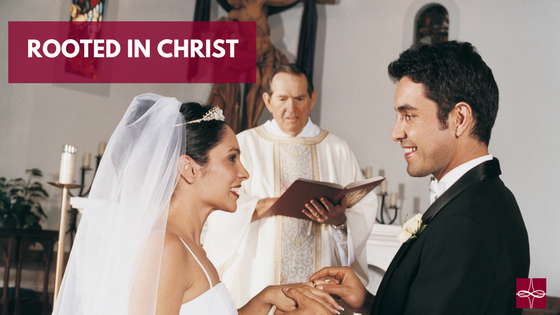
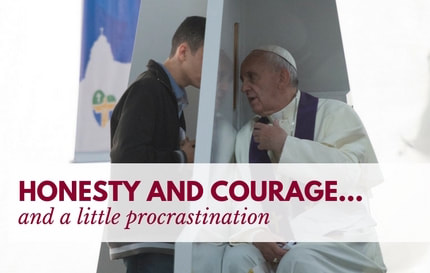


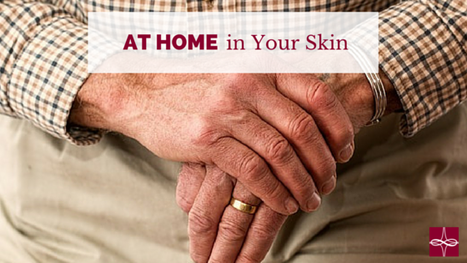

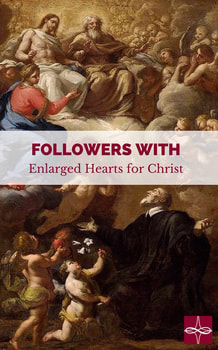

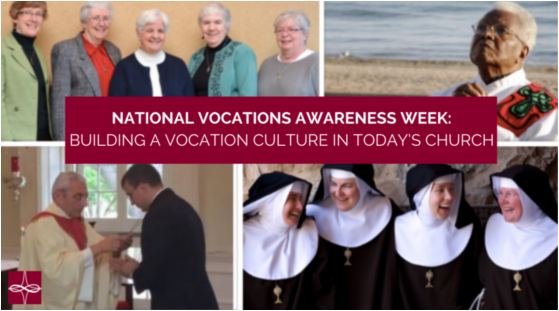


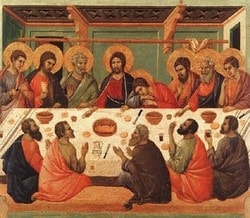
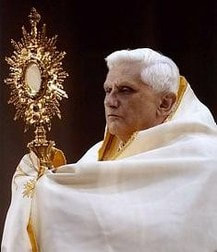
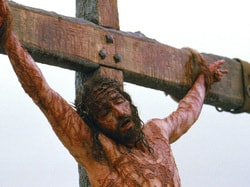

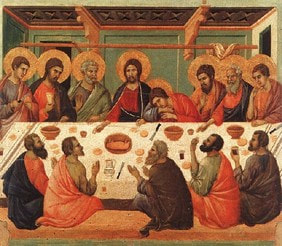
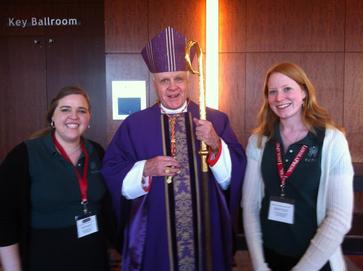

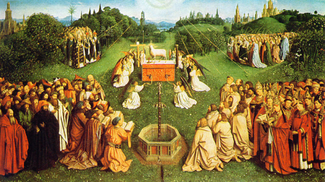
 RSS Feed
RSS Feed